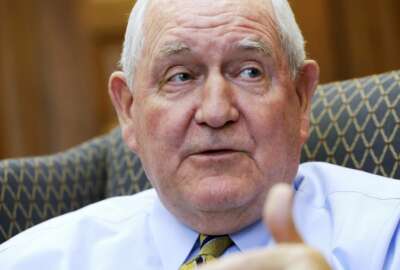

Is today, right now, the golden age of teleworking in government or are some agencies going to reduce the number of teleworkers and cut back on their days at home?
If you’re still with Uncle Sam in 5, 10, 15 years what do you see yourself doing, and where will you likely be doing it from?
Will your carpool be a driverless van, will you commute by electric car or will you live in Boston or New York City and spend the half hour commute by high speed Elon Musk underground train meditating or playing with an electronic device? Or will you never leave the house, at least not for work?
The short answer, of course, is nobody knows.
Who knew, back in the day, that tens of thousands of federal (and many more nonfederal) workers would be doing their jobs from home. In some cases working two or three states removed from the supervisor and colleagues.
When first proposed and tested, teleworking had two strikes against it. Old school bosses had major reservations about employees that were not in line of sight. There were problems with equipment. And dedicated telephones (remember landlines?) Who would pay which phone bill? What if an employee had an accident at home while teleworking? Would that be a workplace injury?
Defense Department officials at one point drew up plans to make surprise inspections (sneak peeks) of employees home-offices during the day. Telework centers were setup in the Washington area providing a place midway between work and home that employees could work. Agencies rented spaces, but the program never really got off the ground.
Today teleworking is a very big deal. But still controversial. Still not entirely out of the woods. The Agriculture Department has or will reduce the amount of time some (maybe most) people can telework by 50 percent. Officials in other departments are suspicious of bureaucrats they inherited from the Obama administration (which in turn inherited them from the Bush administration). The feeling is that folks, especially at places like the EPA, Interior and Justice, aren’t team players. Or haven’t accepted that they’ve got a new coach, manager and playbook which they are supposed to be following. The last thing they want to to make life easier for what they consider are ungrateful, less-than-loyal feds.
So what does teleworking look like now? Are federal agencies doing enough? Or too much? In their haste to cut office costs (and sizes) have some agencies pushed too many people into teleworking? Are the work-from-home types producing and are they maintaining — or losing — ties and contact with folks back at the office?
Has Uncle Sam found the Goldilocks sweet spot — not too hot, not too cold, but just right — in teleworking? Or is there such a thing? A one-size-fits all solution?
We’ll take a look at teleworking on today’s Your Turn radio show. My guest will be Frank Landefeld from MorganFranklin. He’s an expert in business development and engagement in federal, state and local governments. Rather than restricting telework, he says, “the federal government needs to make it easier to incorporate flexibility” rather than shrink or restrict it as the Agriculture Department plans to do.
Landefeld said the pros of a well-managed, flexible teleworking plan are obvious. “It keeps workers off the roads during the terrible D.C. commute (which applies to other major federal centers) and can reduce the real-estate footprint of the federal government, ultimately saving tax dollars,” he said.
He also believes agencies should develop A and B schedules for telework policies that would increase productivity and decrease the need for office space.
The show runs from 10 a.m. to 11 a.m. (EDT) today at Federal News Radio or 1500 AM in the metro Washington area. You can also listen later as the show (along with previous one’s) is archived on our Your Turn page. If you have questions for Landefeld, email them to me (before showtime if possible) at: mcausey@federalnewsradio.com.
Hope you can join is.
Astronaut Jack Swigert had to apply for an extension to filing his taxes in April 1970, when he found himself aboard Apollo 13 on Tax Day. Swigert was originally supposed to be the backup command module pilot, but he ended up replacing original mission pilot Ken Mattingly, who’d been bumped after being exposed to German measles.
Source: Market Watch
Copyright © 2025 Federal News Network. All rights reserved. This website is not intended for users located within the European Economic Area.
Mike Causey is senior correspondent for Federal News Network and writes his daily Federal Report column on federal employees’ pay, benefits and retirement.
Follow @mcauseyWFED

